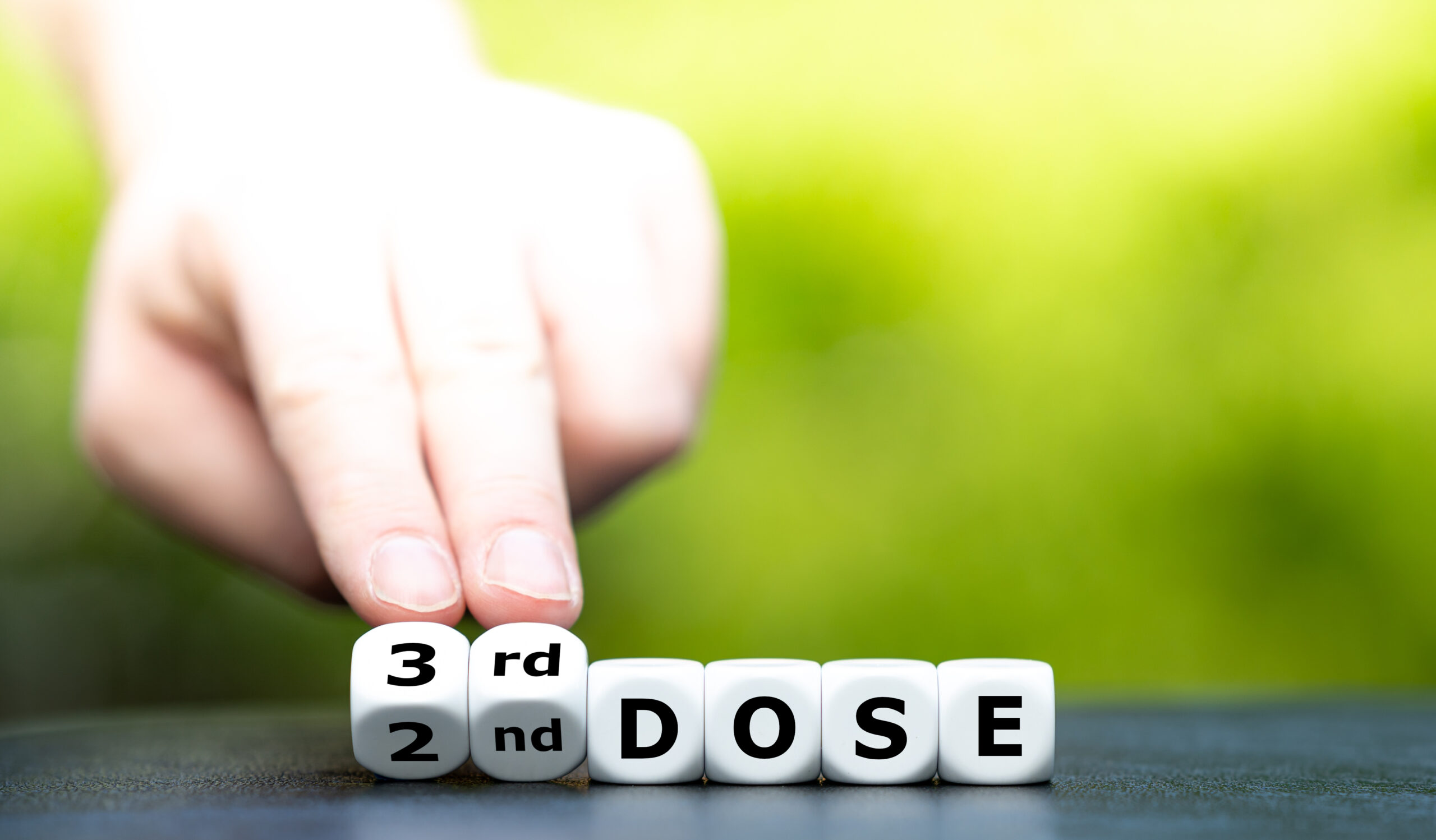By Annette Pinder
Article Sources: FDA, CDC, and GetVaccineAnswers.org
When will everyone be eligible to receive a third vaccine? Beginning September 20, individuals who received two mRNA vaccines will be able to receive a third dose eight months following their last vaccine. Accordingly, if you received your second shot on February 1, you are eligible to receive a third dose on October 1. Since health providers, nursing home residents, and older individuals were the first to receive the vaccines, they will likely be the first to receive their third shot.
Who can receive a third dose now? A small percentage of immunocompromised individuals can now receive a third vaccine. This includes people who have received an organ transplant; individuals with advanced or untreated HIV infection; cancer and transplant patients taking immunosuppressive drugs; people receiving active cancer treatment for tumors or cancers of the blood; those with moderate or severe primary immunodeficiency; those being treated with high-dose corticosteroids or other drugs that suppress immune response; and individuals who received a stem cell transplant within the last two years who are taking certain drugs. Immunocompromised individuals are eligible to receive a third vaccine after 28 days of receiving their second shot. It is not currently recommended that people with diabetes and heart disease get the booster at this time, but the U.S. Centers for Disease Control (CDC) recommends that people consult with their physicians regarding this. Immunocompromised individuals 12 and over can receive a third Pfizer vaccine and immunocompromised individuals 18 and over can receive the Moderna vaccine.
Can you mix and match vaccines? It is recommended that people receive a third does of the same vaccine they previously received. However, If the mRNA vaccine given for the first two doses is not available or is unknown, either mRNA vaccine can be administered.
What should immunocompromised people who received the Johnson & Johnson vaccine do?
The FDA did not authorize an additional dose of the Johnson & Johnson vaccine due to a lack of data at this time. However, this is currently being reviewed.
What are the benefits of receiving an additional vaccine dose? An additional vaccine may prevent serious and possibly life-threatening illness due to COVID-19 in people who may not have responded to the initial vaccine series. In clinical trials, both the Moderna and Pfizer vaccines prevented COVID-19 after two doses. According to the FDA, early Information indicates that immunocompromised people who had low or no protection after receiving two doses of the Moderna and Pfizer vaccines may have an improved response after a third dose of the same vaccine.
Are there risks to getting a third vaccine? Reactions have been similar to that of the two-dose series, with fatigue and pain at injection site being the most common complaint.
What if I have been exposed to or contract COVID-19? Call your doctor to discuss monoclonal antibody treatment if you contract or are exposed to COVID-19. See more about monoclonal antibodies on page 52 and more about boosters at https://tinyurl.com/2dntm6cv.












